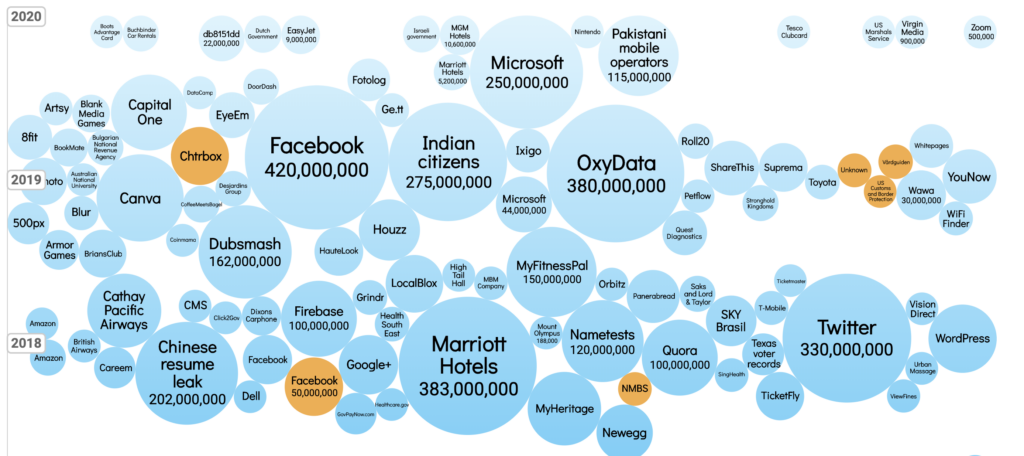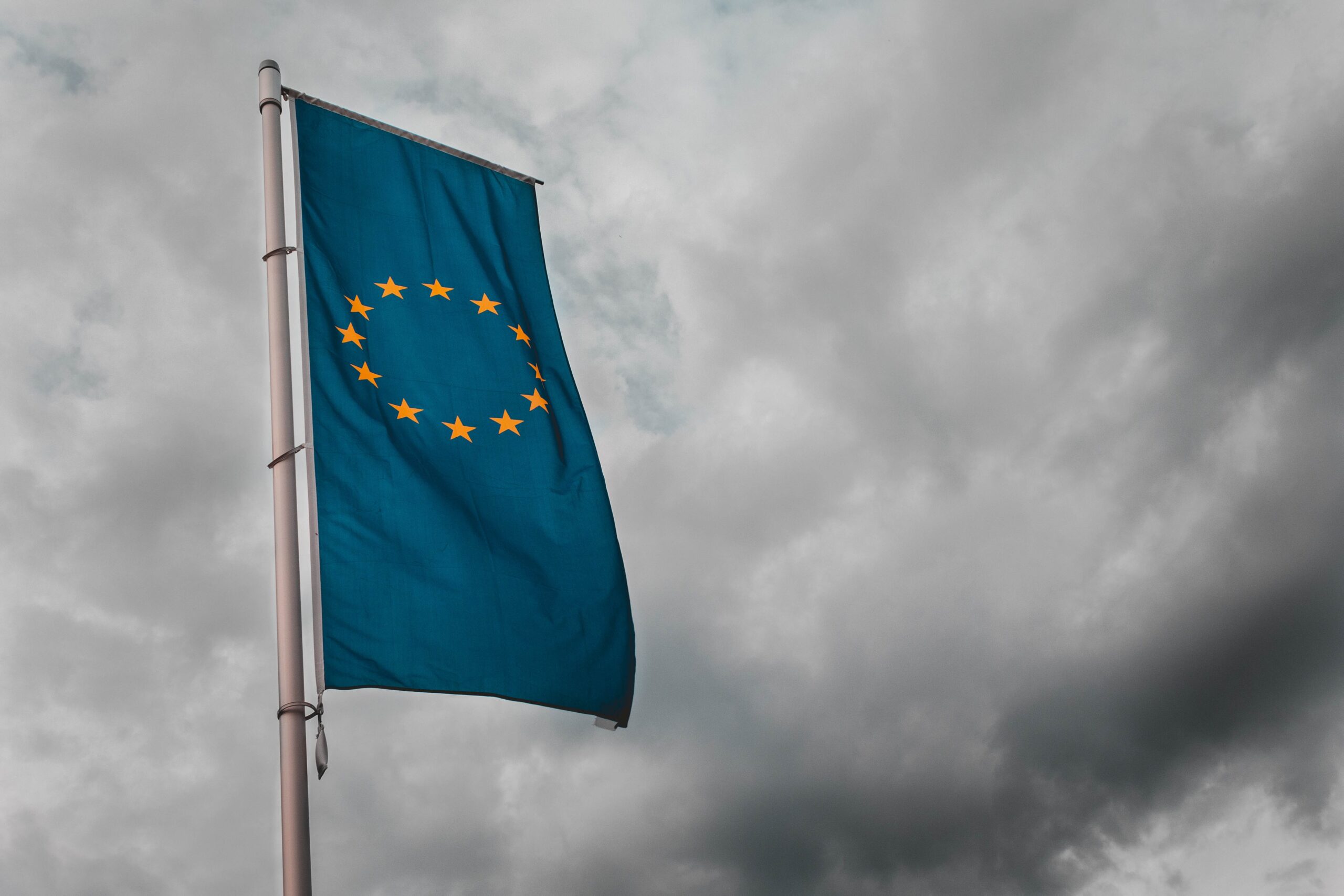Data is a beautiful, immensely powerful, but dangerous tool in the wrong hands. Hidden within the vast amounts of data we produce every day, are essential insights into the inner workings of human behaviour. In the right hands, that translates to increased profits, better predictive models and more personalized services. In the wrong hands, data can influence elections, infringe on privacy and challenge fundamental human rights. If you didn’t read my last post about why data matters – I recommend you check it out here. Let’s dive into the data privacy laws and policies protecting you.
The new normal
Data analytics and the idea of data have been in existence since the 1960s. However, it has only been in recent years that the concept of data protection and policies have come to the forefront. And as unlikely as it sounds, it’s because it wasn’t necessary up until now.

The diagram above shows the number of records that have been hacked by large companies since 2018. To explore further, click this link. However, at no stage in our history has data been so crucial, so abundant yet so vulnerable. As of the present day, centralized siloes store most of the world’s data. Centralized siloes mean that a single breach can compromise thousands of people’s data at once. So what can we do?
Data privacy laws and the development of cars
In many ways, the development of data mirrors the development of the car. Motor vehicles have massive potential. But as you’d expect, a car in the wrong hands is dangerous.
Taming the Wild
As absurd as it sounds, roads were unprepared for the creation of the car. There were no pavements because there was no need for people to walk in a specific area. There were no rules of the road, no airbags, seatbelts, speed limits. Practically speaking, there was nothing preventing cars from damaging people. As a result, people got hurt; many died. Fundamentally, change was needed.
In response to all the problems with driving, governments and companies resolved to change this. Governments across the world made people get a license to operate a car, established rules for how to drive, created traffic lights and made pavements for people to walk safely. Meanwhile, car manufacturers created seat belts, airbags, created new technologies to protect people.
Despite all these developments, the changes that have happened over the decades – 1.5 million people die in car accidents every year. It’s not a perfect system, but it is a far safer one.
Imperfect data protection
Much like the car, data is a technology that needs to be regulated to protect people. It’s currently in a state of regulation. Due to the number of “data accidents”, many people’s data is stolen, misused and empower large companies to maintain a substantial market share.
In countries across the world, governments are starting to take notice of the danger posed by data and the current lack of regulation. Subsequently, many lawmakers are creating data protection laws. They are looking to regulate companies that up until this stage – have had free reign to do what they like. For more information, look at this exciting video on Anti-trust for the top 4 tech companies in the West – click here.
With the rise of GDPR in Europe, the LGPD in Brazil and the current antitrust cases in the U.S, it would appear that crucial questions are starting to come to the foreground. “How do you collect data?” “What do you use that data for?” and “Should you be able to hold all the power?” Whether or not you agree with how these companies currently conduct business – it’s clear that regulations are coming. Rules meant to protect users and customers – the seatbelts, airbags and driver’s licenses of the new world.
Enforcing data privacy laws
Regulating massive corporations sounds good – but it’s not all smooth sailing. When companies are the size of Google, Facebook and Amazon – how do you enforce regulations? With successes in the EU, only time will tell how governments will deal with massive corporations, and how those corporations will adapt to the changing world order. But for the moment, enforcement is moving in the right direction.
Conclusion
In conclusion, the global consensus is that tech firms should be regulated. When we think about how big these companies are, and their power – it becomes clear why this is necessary. The question is not of if, but when data privacy laws will come into play. Although the clashing of governments and corporations seems distant – the results will fundamentally change how we interact with the technology that has become so integrated into our lives.
Yes, data is a beautiful thing. The hidden insights that we can find in data are something unique that can empower positive change. But, they can also do just the opposite.
Thank you for reading this article! If you want to notified of my latest releases, please feel free to sign up to my mailing list! Thank you for being a part of the ChingCo community.





